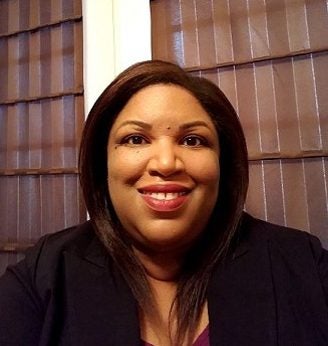Dr. Kimberly Thomas was an English Language Fellow in Malawi from 2008-2009. In Malawi, Thomas taught courses in communication, technical writing, linguistics, methodology, and assessment in the Department of Languages and Literature at Mzuzu University. She also conducted workshops for secondary school teachers, facilitated curriculum development for all English programs in the department, and advised thesis students in the English Education program.

“I believe my greatest impact was on the faculty, and the department, at Mzuzu University,” Thomas said. During her time as a Fellow, Thomas trained hundreds of teachers in Malawi, but the impact of her fellowship went beyond the classroom. She was invited by an American visiting professor to Mzuzu University to work with her and the NGO Ungweru on an HIV/AIDS workshop that was held in Luwinga, Malawi. “This workshop featured honest discussions between Malawian youth and visiting Irish teenagers concerning relationships, responsibility, and preventing the spread of sexually-transmitted diseases, including HIV. As an invited participant, I distributed materials, helped with small-group chats, and moderated larger whole-group discussions. It was a very informative and positive experience, overall. Ungweru means ‘light’ in Chitumbuka, the Northern Malawian dialect.”
Thomas currently teaches first-year writing and introduction to literary genre at Greenville Technical College in South Carolina. She is also a program coordinator in the Upward Bound section of the TRIO program at her university, where she works with economically-disadvantaged high school students to help them become first-generation college students. “The English Language Fellow Program provided me with the confidence and experience necessary to work with students of any age-level, from any background, including very diverse literacy experiences, on reading and writing. I feel that I am now able to engage students in a way that challenges them but also shows appreciation for their diverse range of experiences and unique linguistic histories.”

After her fellowship, Thomas completed her Ph.D. in Composition and Teaching English to Students of Other Languages from Indiana University of Pennsylvania. Her dissertation “Race, Identity, and Composition: The Experiences of Six African Americans in the Professoriate” deals with the life histories of tenured and tenure-tracked scholars in the field of Rhetoric and Composition. “One of the key issues that is addressed in my dissertation is race: what it is, what it means, and how it affects individuals on a personal and professional level. As a Fellow in Malawi, I got a chance to discuss with other professionals what it means to be part of the Black Diaspora. What I learned was that African Americans and Africans must deal with similar histories (not always, but mostly, colonial): we are all a part of this Diaspora—the unique global history of Africans and their journeys—but we occupy different spaces within it. Part of my dissertation was about my own personal journal to overcome stereotypes, internalized racism, self-doubt, and embrace my own uniqueness so that I could become a better educator and researcher. I did a great deal of research on African writers and how they identified and situated themselves with respect to the larger global history. The fellowship allowed me to (re)discover my unique place as an individual and human being.”

While Thomas was training the next generation of teachers in Malawi, she was in turn developing new perspectives on education that continue to influence her teaching in the United States today. “I built my university courses around the framework of providing what was needed by the staff and instructors in my department. In terms of ‘diversity,’ I gained a whole new respect for ecology and how the interconnectedness of materials, access to technology, information, and people all affect one other at once. For example, I simply could not have done any aspect of my job without input from others, and this type of mentality affects my teaching to this day.”

The attitude of Thomas’s students profoundly affected her outlook on education and perseverence. “My ‘Mzuni’ students were very thoughtful, intelligent, hard-working, and had persevered through some of the most difficult circumstances imaginable. But none of those things dampened their smiles or perseverance. My time as visiting lecturer and Fellow at Mzuzu University (‘Mzuni’) in Northern Malawi taught me the importance of being kind; that people and their lived experiences are more important than getting my points across; and that true learning does not require ‘fancy’ or expensive equipment or materials—only the desire of individuals who really want to learn and acquire knowledge.”


